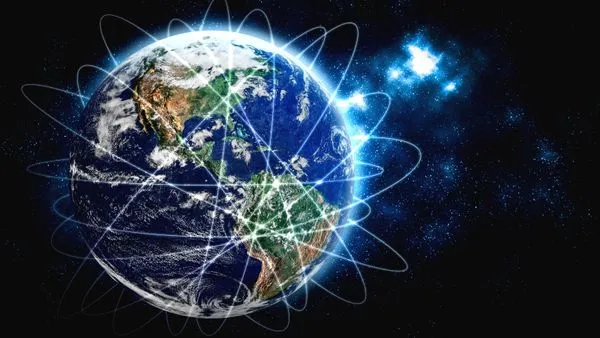By converting data into light particles and beaming them around the world using satellites, we could prevent encrypted messages from being intercepted by a superpowerful quantum computer, scientists claim.
Currently, messaging technology relies on mathematical, or cryptographic, methods of protection, including end-to-end encryption. This technology is used in WhatsApp — as well as by corporations, the government and the military — to protect sensitive data from being intercepted.
Encryption works by scrambling data or text into what appears to be nonsense, using an algorithm and a key that only the sender and recipient can use to unlock the data. These algorithms can, in theory, be cracked. But they are designed to be so complex that even the fastest supercomputers would take millions of years to translate the data into something readable.
Quantum computers change the equation. Although the field is young, scientists predict that such machines will be powerful enough to easily break encryption algorithms someday. This is because they can process exponentially greater calculations in parallel (depending on how many qubits they use), whereas classical computers can process calculations only in sequence.
Fearing that quantum computers will render encryption obsolete someday, scientists are proposing new technologies to protect sensitive communications. One field, known as “quantum cryptography,” involves building systems that can protect data from encryption-beating quantum computers.
Unlike classical cryptography, which relies on algorithms to scramble data and keep it safe, quantum cryptography would be secure thanks to the weird quirks of quantum mechanics, according to IBM.
For example, in a paper published Jan. 21 in the journal Advanced Quantum Technologies, scientists describe a mission called “Quick3,” which uses photons — particles of light — to transmit data through a massive satellite network.
“Security will be based on the information being encoded into individual light particles and then transmitted,” Tobias Vogl, professor of quantum communication systems engineering at TUM and co-author of the paper, said in a statement. “The laws of physics do not permit this information to be extracted or copied.”
That’s because the very act of measuring a quantum system changes its state.
“When the information is intercepted, the light particles change their characteristics,” he added. “Because we can measure these state changes, any attempt to intercept the transmitted data will be recognized immediately, regardless of future advances in technology.”
The challenge with traditional Earth-based quantum cryptography, however, lies in transmitting data over long distances, with a maximum range of just a few hundred miles, the TUM scientists said in the statement. This is because light tends to scatter as it travels, and there’s no easy way to copy or amplify these light signals through fiber optic cables.Scientists have also experimented with storing encryption keys in entangled particles — meaning the data is intrinsically shared between two particles over space and time no matter how far apart. A project in 2020, for example, demonstrated “quantum key distribution” (QKD) between two ground stations 700 miles apart (1,120 km).
When it comes to transmitting photons, however, at altitudes higher than 6 miles (10 kilometers), the atmosphere is so thin that light is not scattered or absorbed, so signals can be extended over longer distances.
The Quick3 system would involve the entire system for transmitting data in this way, including the components needed to build the satellites. The team has already tested each component on Earth. The next step will be to test the system in space, with a satellite launch scheduled for 2025.
They will probably need hundreds, or perhaps even thousands, of satellites for a fully working quantum communications system, the team said.
Source: https://www.space.com/quantum-computers-space-encryption-light-beam-satellite

